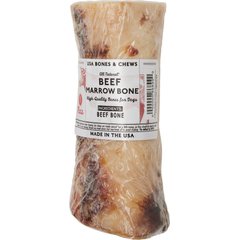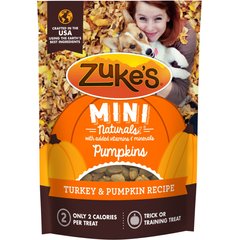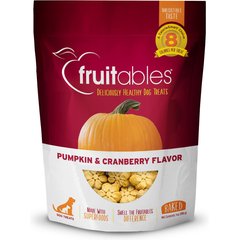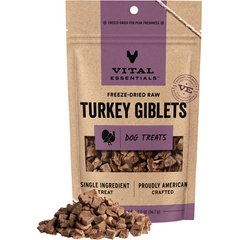Thanksgiving Foods Dangerous to Dogs
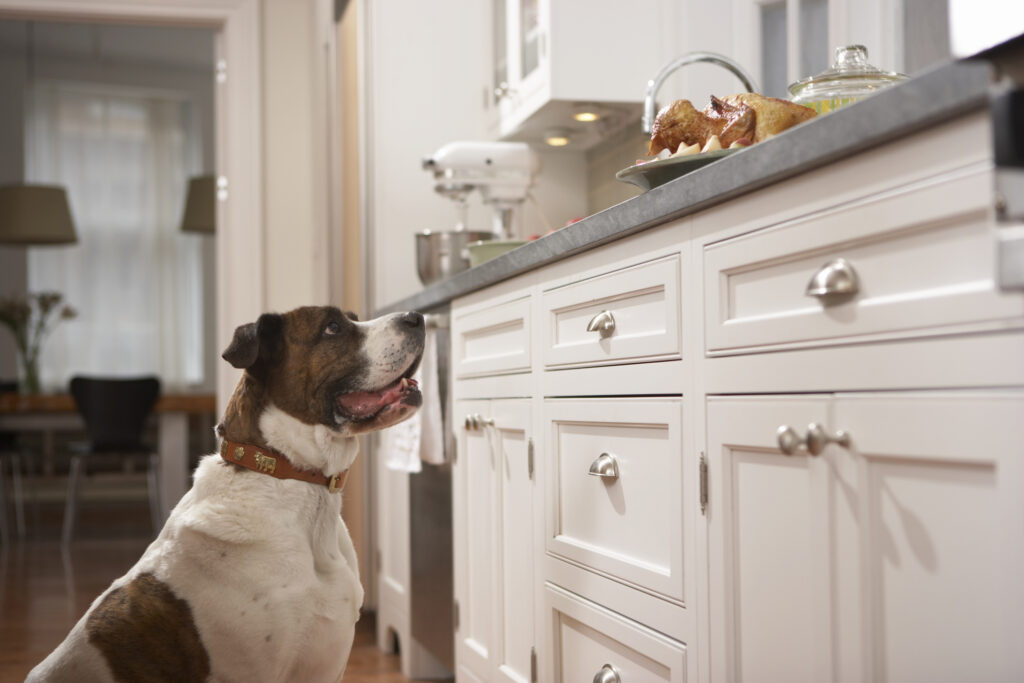
Photo by Chris Amaral/DigitalVision/Getty
As much as we all love the amazing Thanksgiving food and festivities, so do our pets. However, the festive dishes we love so much can be dangerous foods for dogs.
To keep your pup safe and healthy during your Thanksgiving dinner, check out our list of typical autumn and Thanksgiving foods that are toxic for our pets, what clinical signs you may see, and what you need to do if your dog eats these foods at Thanksgiving or any other time of the year.
If your dog eats any toxic foods, call your veterinarian for guidance or take them to the nearest veterinary or pet emergency clinic. You can also call the Pet Poison Helpline at 855-764-7661.
Thanksgiving Foods That Are Dangerous for Dogs
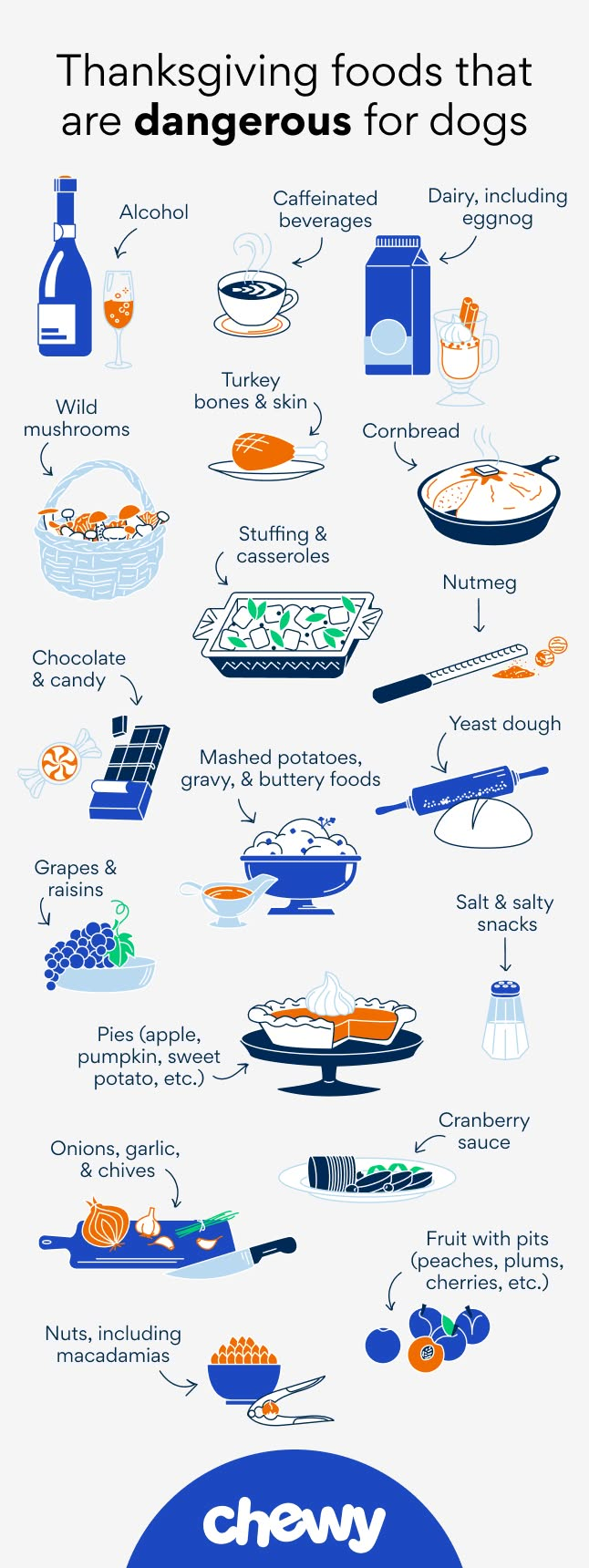
Onions, Garlic, Leeks, and Chives
Cats are actually more susceptible to the toxic effects of onions, garlic, and related foods; however, dogs are also at risk.
- The toxicity causes a condition called hemolytic anemia, which is characterized by the destruction of red blood cells circulating through your pet’s body.
- Ingestion can also cause less critical side effects such as gastrointestinal irritation.
- Toxicity is normally diagnosed through history, clinical signs, and bloodwork.
Grapes and Raisins
Grapes and raisins can be highly toxic to dogs and may cause serious illness even if a pup eats only a small amount. Recent evidence suggests the tartaric acid present in grapes is to blame.
Symptoms of grape or raisin poisoning typically appear six to 12 hours after consumption. Call your veterinarian immediately if your dog experiences symptoms including:
- Lethargy or weakness
- Vomiting or diarrhea
- Increased drinking and urination (or no urine production)
- Abdominal pain
- Dehydration
- Bad or strong-smelling breath
- Neurological signs such as head tilts, dizziness, or seizures
However, if you see your dog eat grapes or raisins, don’t wait for symptoms to appear. Early treatment, ideally before symptoms develop, is most effective.
Macadamia Nuts
When ingested by dogs even in small amounts, macadamia nuts can cause:
- Vomiting
- Hind end weakness
- Lack of coordination
- Tremors
- Lethargy
- Hyperthermia
Signs usually appear within 12 hours of ingestion and can last approximately 12–48 hours. Do not wait to consult your vet.
Nuts
Other nuts, including almonds, pecans, and walnuts, can also be dangerous foods for dogs.
They contain high amounts of oils and fats, which can cause:
- Vomiting
- Diarrhea
- Pancreatitis
Milk and Dairy
Be cautious with dairy and dogs. Despite what many people believe, many dogs do not digest dairy products well because they do not have sufficient amounts of lactase, the enzyme that breaks down lactose in milk. Milk and other dairy-based products can cause your pup to suffer from diarrhea or other stomach upset.
Salt and Salty Snack Foods
The large amounts of salt in snack foods such as chips and pretzels can produce excessive thirst and urination. Extreme cases of salt ingestion combined with a lack of access to water can even lead to sodium-ion poisoning in pets.
Salt toxicity clinical signs include:
- Vomiting
- Diarrhea
- Depression
- Tremors
- Seizures
- Elevated body temperature
- Death
Alcohol
Pets metabolize alcohol differently than we do, so relatively small amounts of alcohol can be dangerous for dogs, cats, and other animals.
Clinical signs of alcohol poisoning include:
- Vomiting
- Diarrhea
- Decreased coordination
- Central nervous system depression
- Difficulty breathing
- Tremors
- Abnormal blood acidity
- Death
If your pet has symptoms associated with alcohol ingestion, see or contact your veterinarian immediately.
Chocolate
Chocolate is not safe for dogs, cats, and other pets.
Chocolate contains two ingredients that can be toxic: theobromine and caffeine. Because different types of chocolate contain different amounts of theobromine and caffeine, both the amount and the type of chocolate your pet eats plays a role in its toxic effects.
- Darker chocolate is more dangerous than milk chocolate.
- White chocolate has the lowest level of theobromine.
- Baking chocolate contains the highest.
Clinical signs of chocolate toxicity include:
- Diarrhea or vomiting
- Restlessness
- Hyperactivity
- Muscle twitching
- Tremors
- Seizures
- Increased heart rate
- Abnormal heart rhythm
If your pet has ingested chocolate, contact a veterinarian immediately to determine if your dog needs to be seen.
Bones and Raw or Undercooked Meat or Eggs
Raw meat and raw eggs can contain bacteria such as salmonella and E. coli that can be harmful to pets and humans.
Pets can choke on bones or sustain injury if a bone splinter becomes lodged in or punctures their digestive tract.
To help your dog satisfy their craving for bones, try Bones & Chews marrow bones instead—they’re produced to be safe for dogs to chew.
Recommended Product
Yeast Dough
When pets digest raw yeast dough, the dough can expand and rise in the GI tract, causing gas to accumulate. This can be painful and cause the stomach to bloat and potentially twist, becoming a life-threatening emergency.
In addition, the yeast produces ethanol as a byproduct and a dog ingesting raw dough may become drunk, with all the same risks as consuming alcohol.
If your pet has ingested yeast-based raw dough, consult with your veterinarian immediately.
If you suspect your dog has eaten a dangerous food or notice signs of poisoning like the ones described above, see or contact your vet. You can also call the ASPCA’s Animal Poison Control Center at 888-426-4435 or the Pet Poison Helpline at 855-764-7661.
FAQs About Thanksgiving Foods for Dogs
Can dogs eat turkey?
Yes and no. Turkey is part of many commercial dog foods and is not toxic to canines. However, few of us roast a turkey without added butter, spices, and stock made with onions and garlic, which are dangerous to dogs.
Here are a few tips for safely serving turkey to your dog:
- Skip the skin, which is fatty, and any bones, which can cause digestive issues.
- Serve a small, bite-size piece that is cooked well and unseasoned.
- Always talk to your vet about adding food scraps into your dog’s diet, especially if your dog has a preexisting health condition like diabetes.
Can dogs eat stuffing?
Many of the seasonings that are added to stuffing (onion and garlic, for example) are off the menu for dogs because they can cause digestive upset or even more serious health problems like anemia.
Instead, treat your pup to Thanksgiving dog treats or a homemade dog treat with turkey flavors (like turkey-cranberry meatballs for dogs!) that they can safely enjoy.
Recommended Products
Can dogs eat cornbread?
Dogs can have plain cornbread (made without potentially dangerous ingredients such as chilis, hot peppers, bacon, scallions, and butter) on occasion and in moderation. However, it doesn’t offer many nutritional benefits, so think of it as a very rare treat.
If making from a mix, check for sugar substitutes such as xylitol, which is toxic to dogs.
Can dogs eat mac and cheese?
Mac and cheese, a delicious addition to lots of holiday feasts, is not toxic to dogs—but it is not necessarily good for them either. The fat and dairy can be difficult for dogs to digest or can even lead to pancreatitis, so it’s best to not give dogs mac and cheese.
